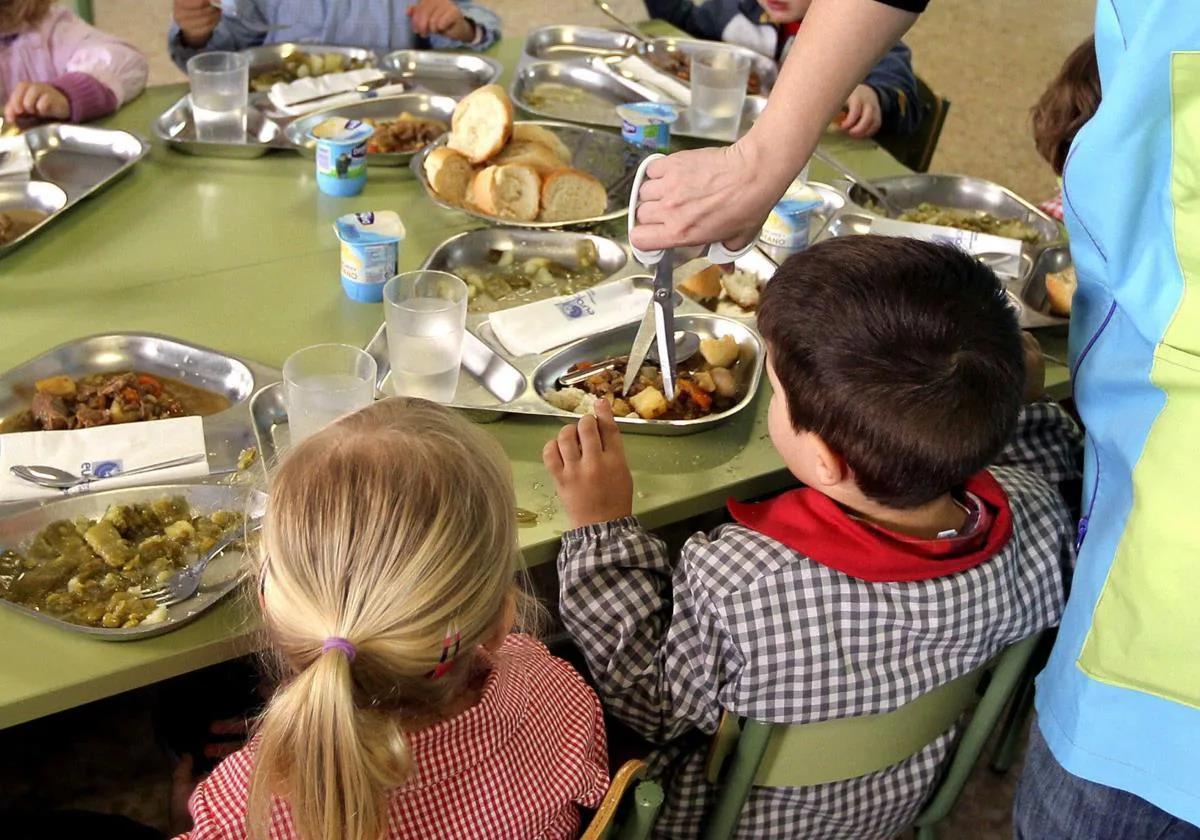

Sections
Highlight

School canteens across the whole of Spain will be forced to serve pupils fruit and vegetables every day, provide only water during meals and will ban sugary drinks, according to the royal decree being prepared by the Ministry of Social Rights and Consumer Affairs. It is one of the measures to curb child obesity in Spain. The ministry, in collaboration with those of education, agriculture, health, youth and children will aim to ensure that schoolchildren have access to at least five healthy meals a week.
The announcement by the ministry coincided this Thursday with the full presentation of the report on the Aladdin study for 2023 on child nutrition and obesity in Spain, which shows that almost four out of every ten Spanish children aged between six and nine are overweight and that Spain continues to be in sixth place among the European countries with this problem (it was third in 2019) and seventh for actual obesity (fourth in the previous year's report). Apart from these worrying figures the main conclusion of the report is that excess weight especially affects schoolchildren living in low-income families.
"The prevalence of childhood excess weight and obesity is inversely proportional to the socio-economic level of families," said Bustinduy, who stressed that all children, including those from families with fewer resources, "have the same right to healthy, quality food and the public authorities have an obligation to remove obstacles so that the full exercise of this right becomes a reality." He continued: "In an advanced economy like Spain's, children's health cannot depend on their family's resources or the postcode of their home."
In this effort to achieve healthy eating among children, Bustinduy stressed the importance of school canteens, where 49.5% of pupils usually eat their main meal of the day and 54% eat breakfast, although he regretted that "only one in three families consider that the food served in schools is of good quality."
More fruit and vegetables
In addition to increasing consumption of fruit and vegetables, the new royal decree will urge schools to offer quality meat and fish and to increase the amount of pulses and cereals on their menus.
Currently 36.1% of Spanish schoolchildren are classed as overweight (20.2% overweight and 15.9% obese), 4.5% points less than four years ago, but the situation is particularly worrying in families earning less than 18,000 euros a year, where excess weight affects almost half (46.7%) of children from these families compared to 29.2% in families earning over 30,000 euros. In summary, obesity and weight issues increase progressively in households struggling to make ends meet and when one of the parents is not in paid work.
Children from families with incomes below 18,000 euros per year also consume less fruit (36.4%) and vegetables (19.2%) than those from families with 30k-plus incomes (in this group 53.6% eat fruit daily and 29.3% vegetables) and, conversely, children from families with lower incomes have an eight-fold increase in the consumption of sugary drinks: 7.8% drink them more than three days a week compared to 0.9% among children from families with more money.
Publicidad
Publicidad
Publicidad
Publicidad
Esta funcionalidad es exclusiva para suscriptores.
Reporta un error en esta noticia
Comentar es una ventaja exclusiva para registrados
¿Ya eres registrado?
Inicia sesiónNecesitas ser suscriptor para poder votar.